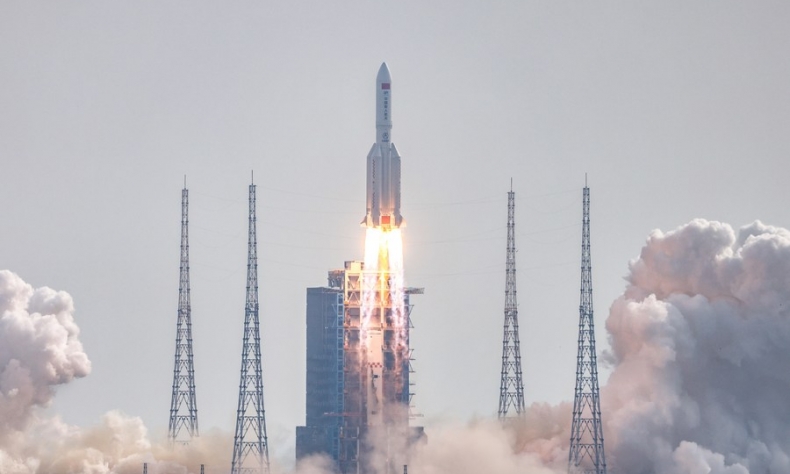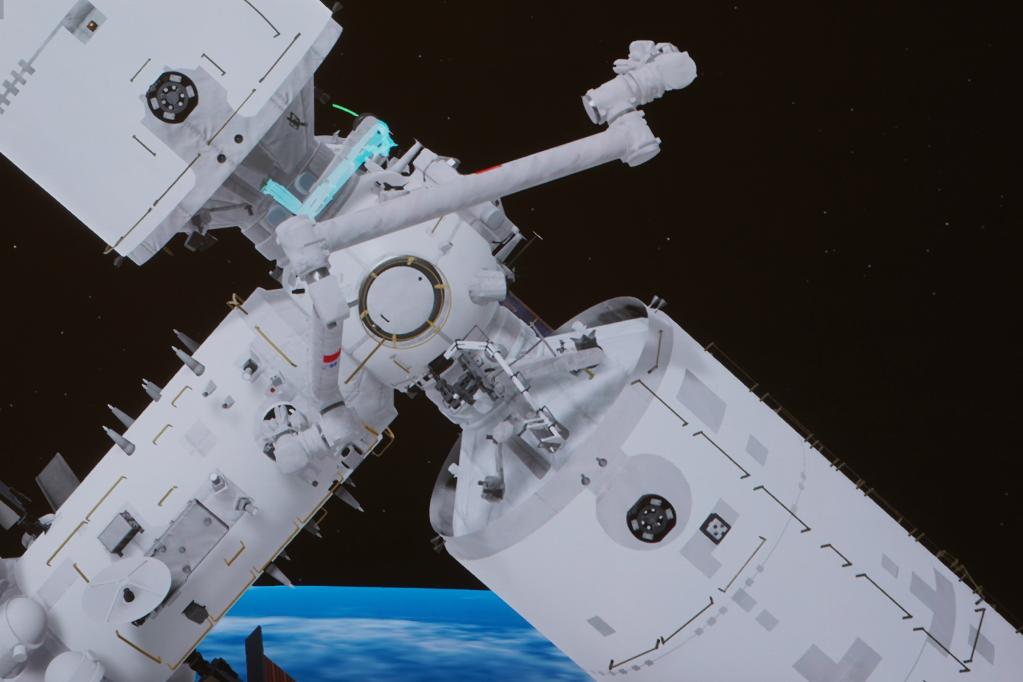Space Technology Progress Benefits Humanity

Outer space resources are the common wealth of all mankind.
China has achieved remarkable results in space exploration, especially in 2022, including the successful launch of the Shenzhou-15 manned spacecraft in November, which wrapped up the last stage of the construction of China’s space station, Tiangong, or “Heavenly Palace.”
China’s progress in the space industry has gained momentum over the past three decades. During that time, it independently developed its manned space program and achieved leapfrog development in space science and technology. In 2020, its Chang’e-5 mission retrieved lunar samples, making China the third country in the world to return samples from the Moon.
China is now pursuing a dream of developing a robotic research station near the Moon’s south pole, aiming to facilitate a crewed lunar landing and build an outpost near the pole in the 2030s, as per its plan.
The country has already reached Mars, with its robot conducting thorough research on the red planet. It is also planning to launch a new space telescope called Xuntian to map stars and supermassive black holes. The telescope will periodically dock with the space station for maintenance.
The rapid development of China’s space industry owes to its growing scientific and technological strength and innovation capability. The country has stepped up efforts to expand its talent pool in the space industry, and its strong manufacturing sector has also provided support for the development of the sector. Moreover, the country has also proved its mettle in overcoming difficulties in order to materialize its dreams.

Thanks to all these efforts, the Chinese people are reaping the dividends of progress in space technologies. For example, the launch of different types of satellites has contributed to the protection of natural resources and the environment. They have also played important roles in disaster prevention and mitigation, management of emergencies, weather forecasting, and climate change responses, thereby helping improve people’s well-being in the country and the world at large.
While making new progress in its aerospace industry, China has committed to promoting international space cooperation. It has promised to open its space station to all member countries of the United Nations, sharing its achievements in the aerospace sector with the rest of the world. It has also signed cooperation agreements and conducted projects with France, Germany, Italy, Russia, and Pakistan, as well as space agencies and organizations from around the world.
Space research and exploration used to be a scientific avenue being navigated by only a handful of nations. However, outer space resources are the common wealth of all mankind. China’s openness in its aerospace progress may present greater opportunities for countries, especially developing countries, to be part of space exploration and encourage them to dream of carrying out their own research in deeper space.
Outer space not only reveals the past of the universe but also tells the future of the Earth. As more international astronauts and scientists have the opportunity to work and live on the space station, more breakthroughs are expected to be made in space exploration, which will in turn deliver greater benefits to humanity.
Ershad Shikdar is a Bangladeshi journalist and opinion writer based in Beijing.
 Facebook
Facebook
 Twitter
Twitter
 Linkedin
Linkedin
 Google +
Google +










